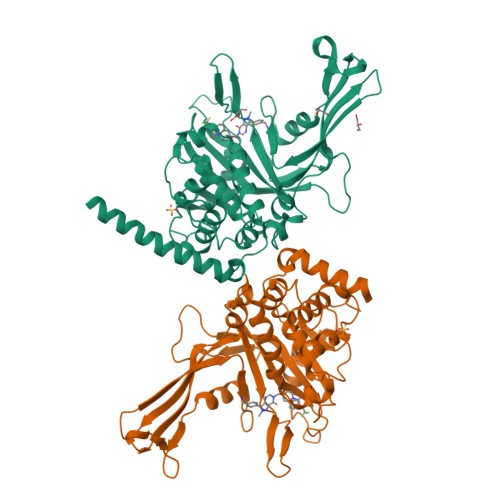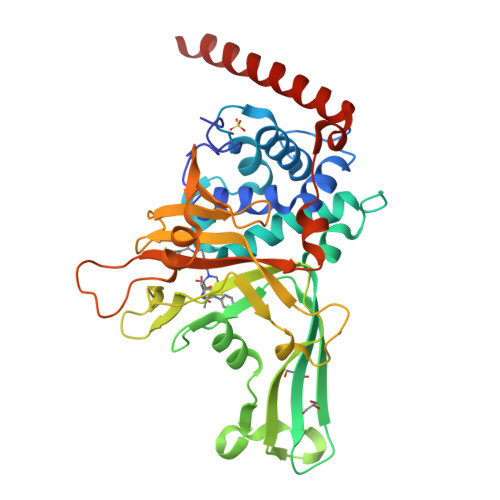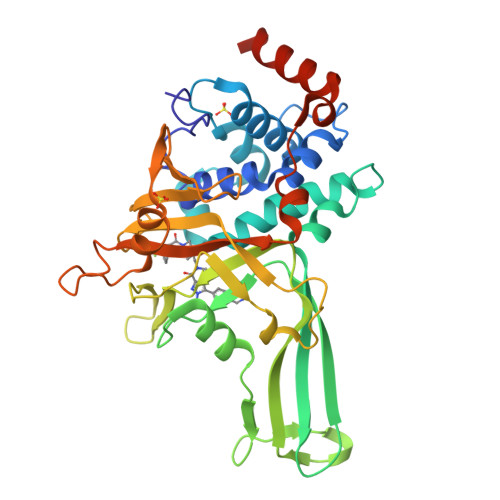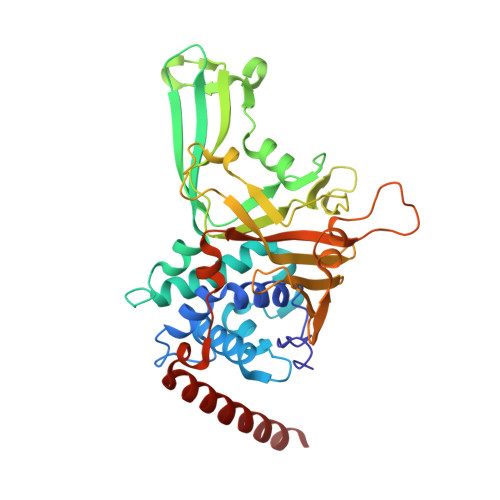Discovery and characterization of highly potent and selective allosteric USP7 inhibitors.
Gavory, G., O'Dowd, C.R., Helm, M.D., Flasz, J., Arkoudis, E., Dossang, A., Hughes, C., Cassidy, E., McClelland, K., Odrzywol, E., Page, N., Barker, O., Miel, H., Harrison, T.(2018) Nat Chem Biol 14: 118-125
- PubMed: 29200206
- DOI: https://doi.org/10.1038/nchembio.2528
- Primary Citation of Related Structures:
5N9R, 5N9T - PubMed Abstract:
Given the importance of ubiquitin-specific protease 7 (USP7) in oncogenic pathways, identification of USP7 inhibitors has attracted considerable interest. Despite substantial efforts, however, the development of validated deubiquitinase (DUB) inhibitors that exhibit drug-like properties and a well-defined mechanism of action has proven particularly challenging. In this article, we describe the identification, optimization and detailed characterization of highly potent (IC 50 < 10 nM), selective USP7 inhibitors together with their less active, enantiomeric counterparts. We also disclose, for the first time, co-crystal structures of a human DUB enzyme complexed with small-molecule inhibitors, which reveal a previously undisclosed allosteric binding site. Finally, we report the identification of cancer cell lines hypersensitive to USP7 inhibition (EC 50 < 30 nM) and demonstrate equal or superior activity in these cell models compared to clinically relevant MDM2 antagonists. Overall, these findings demonstrate the tractability and druggability of DUBs, and provide important tools for additional target validation studies.
Organizational Affiliation:
Almac Discovery Ltd, Centre for Precision Therapeutics, Belfast, Northern Ireland, UK.






















